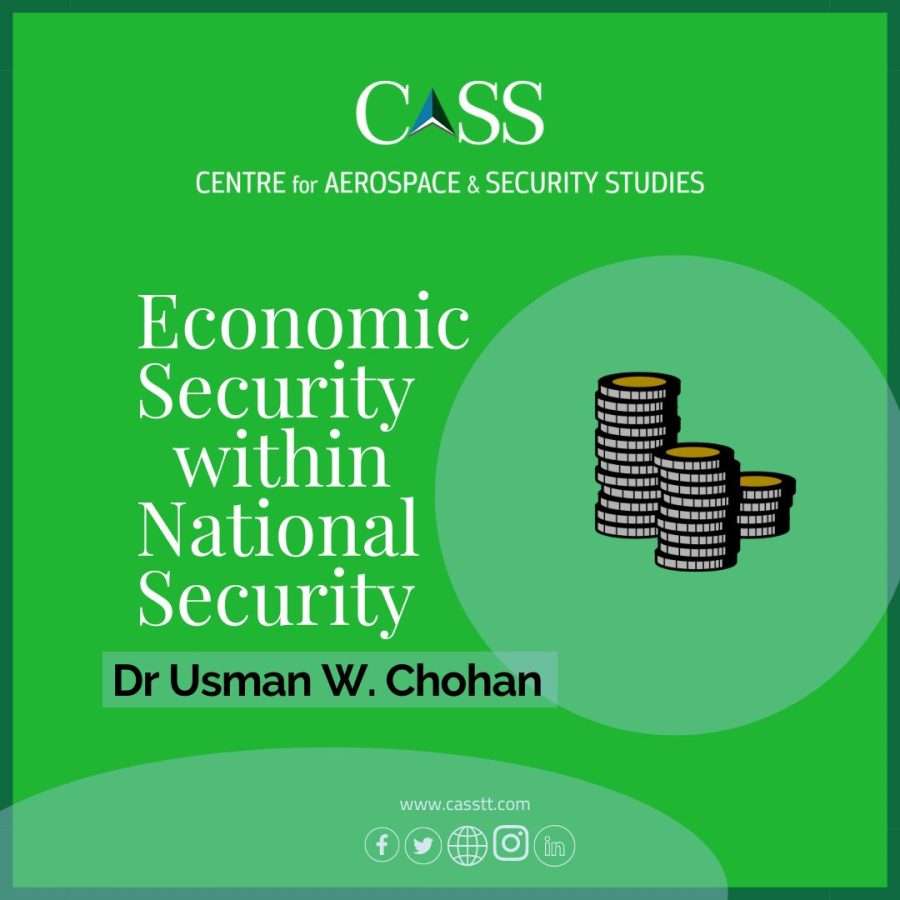The first Islamabad Security Dialogue (ISD) was conducted in mid-March 2021 with the aim of drawing upon national and international thought-leaders to discuss how Pakistan’s national security calculus should more accurately reflect the nation’s multidimensional and interrelated security challenges. The structure of the dialogue, divided into five thematic sessions, reflected the need to incorporate a wider matrix of socio-security challenges, and a recognition that Pakistan must engage proactively on all fronts to attain a greater degree of co-integrated security against hybrid threats
Two of the sessions, economic security and human security, centred around what once may have been categorised as non-traditional security domains. But in the contemporary global context, shaped by “wicked problems” of climate change, globalisation, population growth, rising non-state actors, and cyberactivity, among various other threats; it was important to point out that economic security and human security are urgent and elevated priorities. The ISD served as an ideal platform to emphasise to a wider audience how these priorities are being recalibrated, given how the matrix of global threats itself is becoming more complex, fluid, and interrelated.
Session 2 of the Islamabad Security Dialogue, for which I served as moderator on behalf of the Centre for Aerospace and Security Studies (CASS), was titled “Economic Security at the Core.” It consisted of five speakers from Pakistan and the United States, who collectively brought a rich set of diverse perspectives on how to develop and assure economic security for Pakistan and the wider world. Although each speaker drew upon their own subject-matter expertise, their combined contributions highlighted several areas of commonality, thereby reinforcing the idea of interrelatedness among concepts that lie within the umbrella term of “economic security.”
The foremost takeaway from Session 2 was that economic security should be a central component in any overarching national security strategy, and that our government’s emphasis on placing economic security at the core is not just a positive step but a necessary one. Yet in the same way that “national security” is a multidimensional phenomenon, the concept of “economic security” itself comprises an equilibrium among many moving parts. In other words, a nation’s power, influence and economic security are deeply intertwined, as noted by the keynote speaker H.E. Razzaq Dawood, and so a holistic understanding of the economic vulnerabilities and their complex relationship is necessary to understand the risks posed to national security.
A second important takeaway was that globalisation continues to represent an important driving force that shapes the economic security (or lack thereof) for all nations. Yet the global economy is transforming, and Pakistan must transform to adapt to a state of globalisation that is itself in flux. The eminent American professor Miles Kahler focused his remarks on this changing nature of globalisation, highlighting how a variety of exogenous factors, including non-state actors and the policies of major powers, weigh upon the economic security of any country. As such, new modes of globalisation will serve as the backdrop in which Pakistan’s economic security will be designed.
A third important takeaway from the session was that regional connectivity is an important stepping-stone for economic security. As was emphasised in the remarks of two notable panelists, Shamshad Akhtar and Haroon Sharif, regional connectivity should be an important goal for any economic security strategy. The converse is also true: economic security lays the precondition for regional integration, which is why cross-border infrastructure connectivity and financial exchange is critical in promoting elements of economic security such as trade and investment. As Haroon Sharif rightly observed, future regional connectivity will not just be based on physical infrastructure, but on information- and knowledgebased connections as well. Pakistan’s challenge in regional connectivity has in large part been that its neighbours, due to internal strife or their ideological enmity, haven’t offered a conducive environment within which to expand regional connections. However, Pakistan-China cooperation serves as an increasingly valuable counterexample to what is possible in the Asian Century, even in an under-connected region such as South Asia.
A fourth and no less important takeaway regarded the importance of energy policy and of climate change’s impact on the modes of economic production. The eminent Harvard professor Joe Aldy informed our session by shedding light on the importance of sustainability in energy policy and in climate action. Pakistan is a particularly climate-vulnerable country, and it has also faced an energy deficit, leaving it to fend against two significant economic headwinds simultaneously. However, both can be addressed through farsighted measures that include a larger weight on renewables in our energy mix. Economic security in the 21st century cannot be attained without such investments that are mindful of climate vulnerability and energy reliance, which is why Pakistan must be proactive in undertaking a climate-resilient and energyefficient economic strategy.
Beyond these important takeaways, a significant portion of Session 2 highlighted the challenges that Pakistan’s economy now faces, and there is no shortage of adversity in what Pakistan must overcome to realise its economic security. Yet the tenor of Session 2 was one of optimism: what Pakistan confronts as economic headwinds also provide a set of meaningful opportunities. If these obstacles are surmounted and converted into opportunities for economic empowerment, then Pakistan would not just assure its economic security, but also bolster its larger national security. This is why economic security can and should sit at the core of our national security strategy, as the findings of the Islamabad Security Dialogue’s Session 2 sought to convey
Dr. Usman W. Chohan The writer is the Director for Economics and National Affairs at the Centre for Aerospace and Security Studies (CASS). The article was first published in THE NATION. He can be reached at cass. thinkers@ gmail.com




